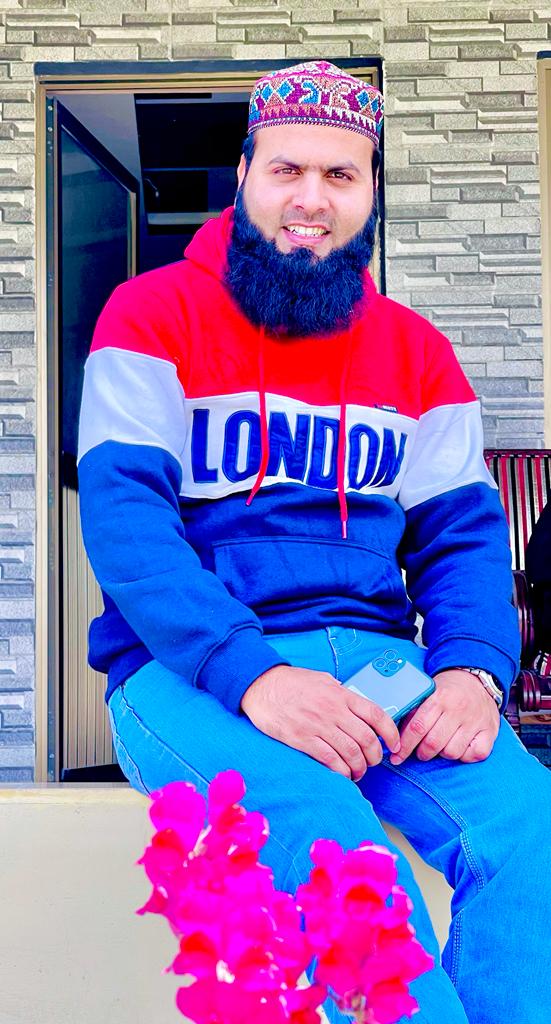He went viral because of his slapstick comedy, funny music transitions, and social commentary. But on TikTok, he’s known as Famous “Maulvi,” the South Asian term for Muslim preacher.
TikTok user Usman Asim defies expectations of how an Islamic preacher behaves, yet his online persona gained 10.1 million loyal TikTok followers and became his primary source of income within months.
That was until the bans. The Pakistani government has banned TikTok four times since last year for content they deem “vulgar, immoral and obscene.”
“The government should have issued penalties against the people they are accusing of making vulgar videos instead of just banning the entire platform for everyone,” Asim told VICE World News from his home in Wazirabad, a small town 60 miles from Lahore.
Despite removing the app from the country’s servers several times, the government has routinely backtracked on its bans. And now, it seems the social media company is addressing the frequent government strikes by launching a safety centre with moderators to filter “vulgar” content.
“Keeping in mind all the cultural nuances of Pakistan, we have more than tripled our investment in the last twelve months in our dedicated local-language moderation team for Pakistan,” a TikTok spokesperson told VICE World News.
“Content moderators are a part of our trust and safety teams, whose job is to formulate and enforce strategies and policies that are in line with the local laws, culture and prevailing sentiments in Pakistan,” they added.
The company already launched a campaign called #AapSafeTohAppSafe, which translates to “if you’re safe, the app is safe,” to encourage users to use the app responsibly. The hashtag has been used 476.5 million times in three months. TikTok says its Urdu-language safety centre will include parental controls, protection against bullies, and suicide alerts.
Pakistan’s regulatory authority has given a lukewarm response to the new measures and is yet to unban the app, which some users in Pakistan still access through VPNs.

Prior to the first TikTok ban in October 2020, the app had 20 million active users within Pakistan. In 2019, it was the second most-downloaded app in the country with around 16.3 million downloads. In Pakistan, TikTok has allowed many small-town creators like Asim to carve out a living while showing their diversity and keeping to a wholesome identity.
Critics have dubbed the government’s directives and classification of “indecency” as vague, arbitrary, sexist and classist. Like Asim, most TikTok users and content creators in Pakistan come from small cities and villages. For them, TikTok is an accessible and easy way to make money.
“TikTok setting up a safety center is due to governmental pressure guided by patriarchal elitism to censor content deemed ‘immoral’ without defining it, apart from setting a precedent for further consolidation of censorship by the state,” Usama Khilji, the director of digital rights nonprofit Bolo Bhi, told VICE World News.
Before the bans, TikTok showcased what relatability and authenticity meant to millions in Pakistan. Content with comedy, dance, fashion, social commentary and glimpses into indigenous rural lifestyles and cultural traditions wasn’t just sticky; it went viral.
In earlier warnings preceding the first TikTok ban, the Pakistan Telecommunication Authority said unfiltered immoral content on the platform had “extremely negative effects on the society in general and the youth in particular.” The Prime Minister’s digital media chief, Arslan Khalid, said that the app was responsible for the exploitation of female TikTokers and the objectification and sexualisation of young girls.
According to TikTok’s transparency report, it removed 6,495,992 videos from Pakistan from January to March of this year. Fifteen percent of them were deemed sexually explicit. The Pakistani government didn’t think it was enough, and it criticized the app’s regulations and demanded additional moderation of content. It also asked TikTok to remove their ‘love and dating’ category from the users interests page for Pakistan.
Activists believe TikTok’s decision to put up a “safety centre” is a concession to the government clampdown on online expression.
“A lot of content has been wrongfully taken down, which puts an additional burden on content creators who rely on social media for their livelihood and to exercise free speech,” said Khilji.
Over the years, social media censorship in Pakistan has increased as tech companies and social media users face magnified scrutiny. In 2020, the government proposed regulations that expanded a controversial 2016 cybercrime law that banned online content that infringes “the glory of Islam,” national security, public order, national integrity and defence – besides decency and morality.
Pakistani civil society groups have actively challenged the law and the proposed rules, saying they violate people’s right to free speech.
In 2020, dating apps Tinder, Grindr, Tagged, Skout and SayHi were banned in the country. The same year saw bans against TikTok and livestreaming app Bigo over morality concerns. In 2012, Pakistani authorities banned YouTube after the release of an Islamaphobic film titled “Innocence of Muslims'' that caused widespread protests across the country. The tussle lasted more than three years.
YouTube access was eventually restored in the country in 2016 through a local version. Google, which owns YouTube, then said it would only remove content from Pakistan after a thorough vetting and review process.
Left with little choice, many Pakistani TikTokers like Asim have migrated to alternatives like the Singaporean app SnackVideo, but they miss the accessibility and functionality that TikTok offered.
As far as Asim is concerned, he feels the clampdown should only affect content creators who push the envelope too far. “Just like five fingers on a hand are not of equal size, not all creators are the same. Not everyone should be punished,” he said.
Follow Rimal Farrukh on Twitter.
"vulgar" - Google News
September 27, 2021 at 08:27PM
https://ift.tt/3odfq6D
TikTok Now Has ‘Vulgarity’ Moderators in Pakistan - VICE
"vulgar" - Google News
https://ift.tt/3d6zY8d
Bagikan Berita Ini














0 Response to "TikTok Now Has ‘Vulgarity’ Moderators in Pakistan - VICE"
Post a Comment